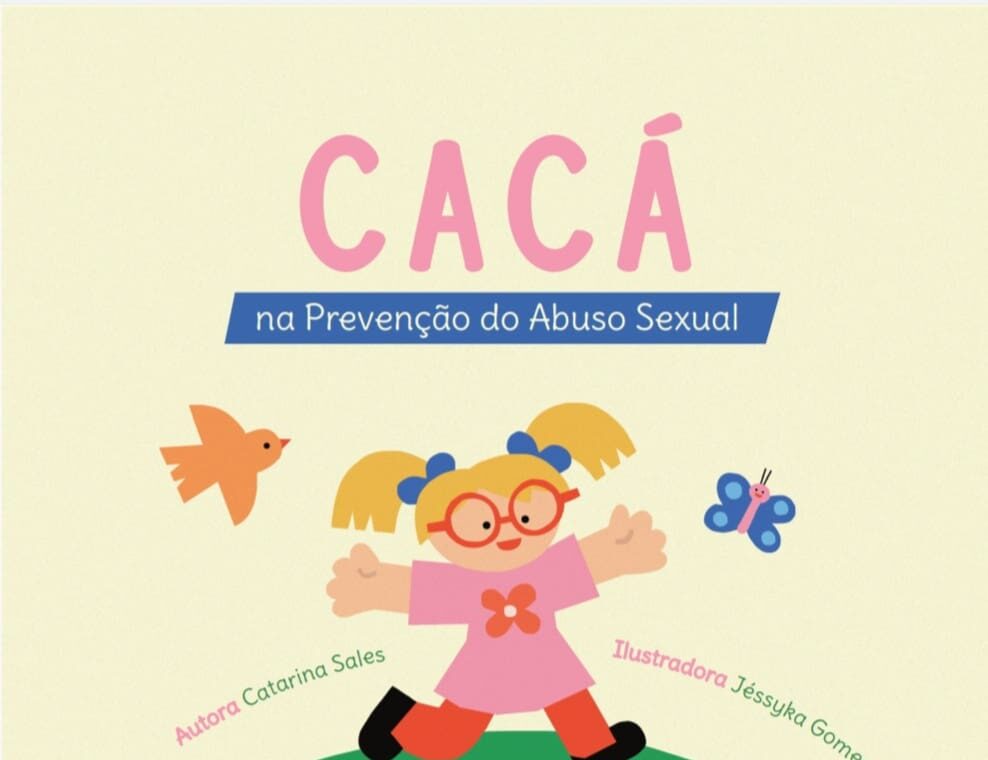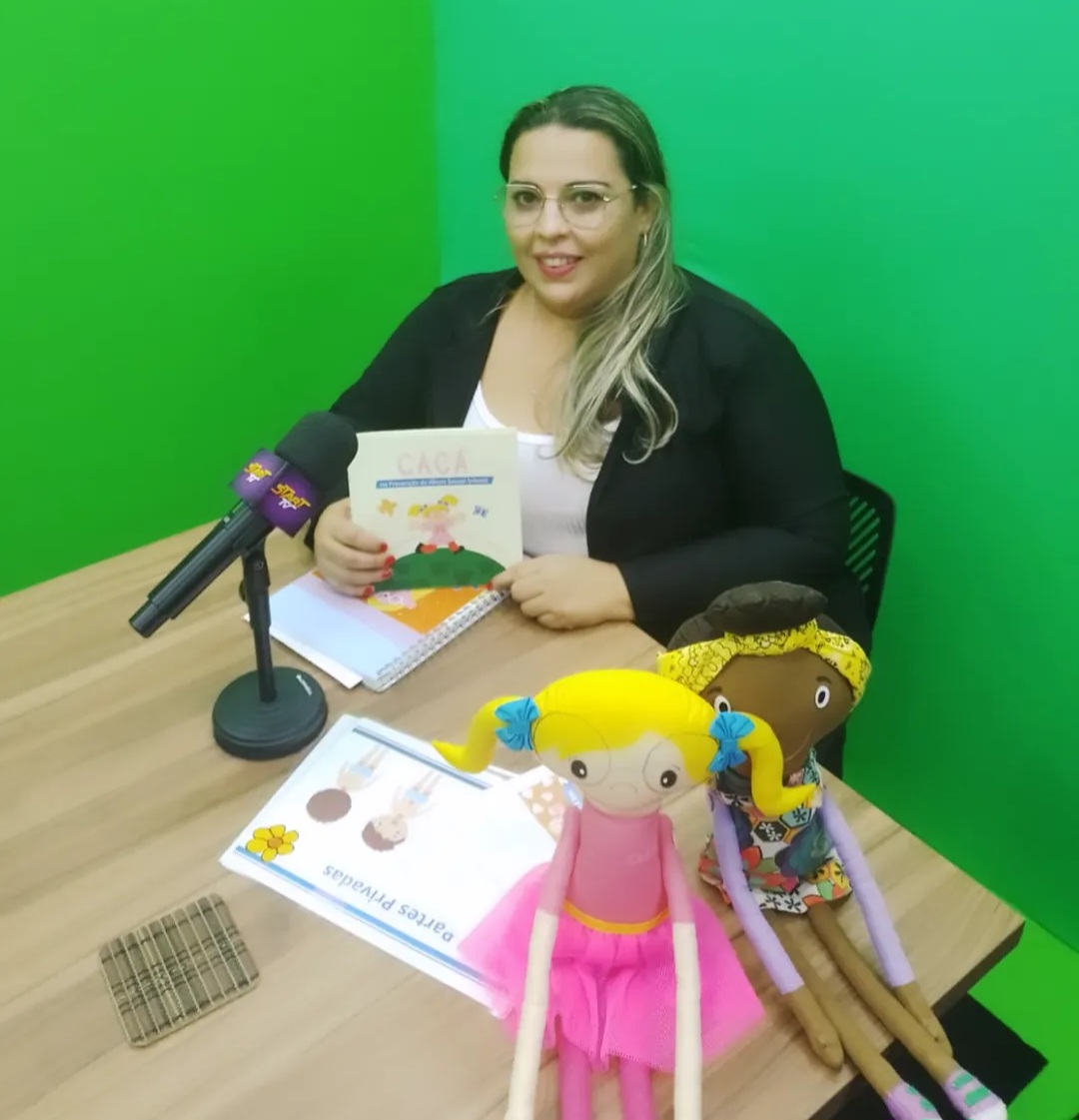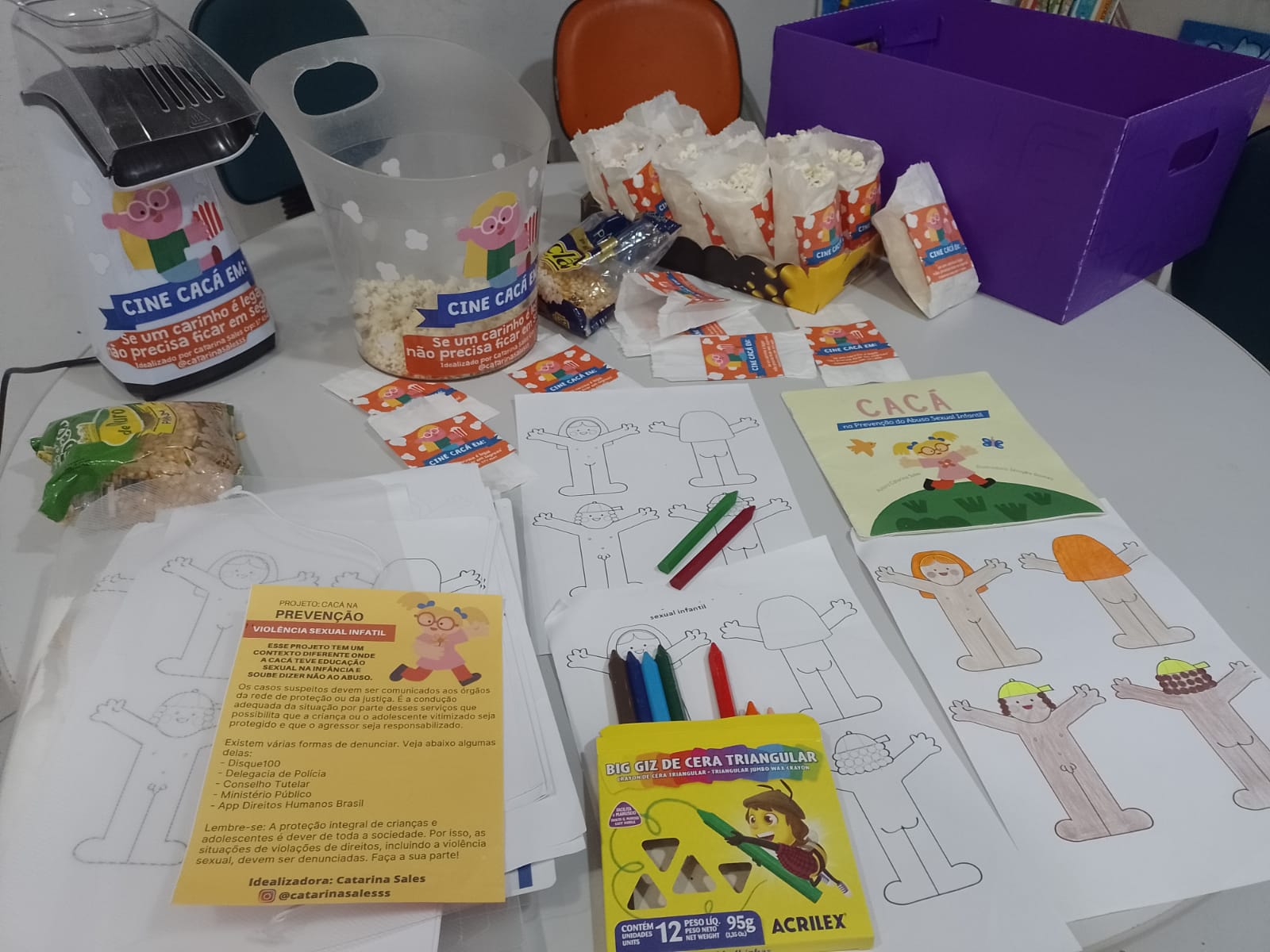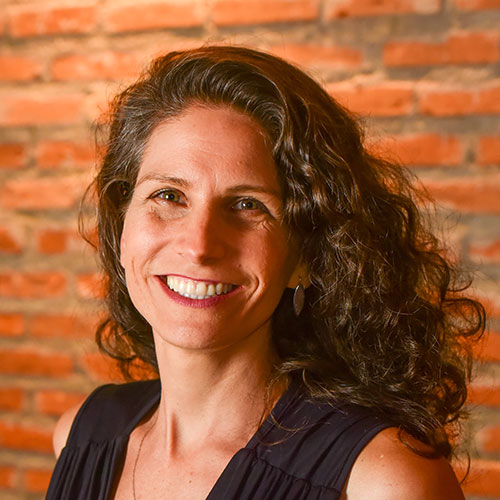Through art, Cine Cacá teaches children to protect themselves from sexual abuse
Contrary to popular belief, sex education does not lead to promiscuity and is essential to combat violence against children


Since 2018, the psychologist Catarina Sales, has taken Cine Cacá to schools, shelters and NGOs to teach children and adolescents how to protect themselves from sexual abuse. With her own booklet, cloth dolls, movie sets and lots of popcorn, Catarina explains body parts and warns about touching and consent. The project is carried out in Natal (RN) independently and includes children aged 2 to 14.
The workshops are held in the classroom, with small groups. While the children eat the popcorn, Catarina presents the 3R methodology, which is to recognize, react and report abuse. She then projects two videos available on YouTube and presents the Cacá and Nina dolls, as well as the booklet with body parts, to talk about sexual education.
The main message is to show that adults should not touch children’s private parts, and if this happens, children don’t need to be afraid or keep it a secret. “We need to teach our children about abuse because the abuser doesn’t come dressed as a monster. Most abuses are committed by known individuals, many of whom are family members,” advises Catarina.
Motivation
The project is carried out autonomously, voluntarily and with its own resources. Despite all the challenges, Catarina has a personal reason that keeps her going. She was 13 years old when she was also a victim. “There were no touches, but it was a horrible scene. He was a very good friend of my father and I was silenced, because the family didn’t want trouble,” she remembers.
It was during her first internship as a psychologist that the character Cacá emerged. Recently arrived at the CREAS environment and moved by childhood memories, she attended to a four-year-old girl who was being abused by her stepfather. She then began the consultation by saying that Cacá was a child who received sexual education in childhood.
“I asked the girl if she knew what sexual education was, she said no and I explained: Cacá knows the parts of the body and if someone touches her, she runs away and doesn’t keep it secret, she tells everything that happened. The girl started crying and then said: ‘auntie, if I had met Cacá before, my stepfather wouldn’t have done this to me, because I would have run away and told my mother’”.

Cine Cacá, knowledge and protection
The psychologist emphasizes that violence exists even when the victim is not touched: “When an adult masturbates in front of a child, shows pornographic materials, observes the child in a sexualized way while bathing or changing clothes, this is also sexual violence.”
Therefore, access to this type of knowledge is fundamental to defending children. “Educating children about their bodies, personal boundaries, and what constitutes inappropriate behavior can empower them to recognize and report situations of abuse,” she says. At the same time, she continues, “you need to create a safe and nurturing environment for children where they feel comfortable talking about their feelings and concerns.”
With this in mind, Catarina expanded sexual education activities for children over 10 years old. With the Maletinha das Emoções (Emotion Bag), she visits students from the sixth to the ninth grade (between 11 and 14 years old) so they can write down everything they are feeling bad and can’t tell someone.
The tickets are deposited in the briefcase containing the name and class, with the commitment that their reports will not be published. “There were cases of teenagers who were abused and there were complaints. We even learned about a case of a teacher who abused people in the school’s resource room”, she says.
The school and the trusted person
When a child is abused, they should tell a trusted person what happened. This person does not necessarily have to be a member of the family, it could be the teacher or the school director or someone in the neighborhood, warns Catarina. “The school in this case is essential, because it can take action, make a complaint, etc.”
Cine Cacá has given good results. “Not long ago, I gave a booklet to a child and her mother came back the next day in tears, saying that she realized that her father was abusing her daughter. The girl told her mother that she didn’t know which grandfather she was going to meet, whether it was the loving and nice grandfather or the nervous grandfather who kept picking on her little parts as Cacá teaches in the booklet. So it works, a lot!”, argues Catarina.
The booklet was written in the form of rhymes. Cacá, the main character, teaches her little friend Nina about preventing sexual violence. As a result, the city council of Parnamirim (RN) recently proposed the purchase of 14 thousand booklets to distribute throughout the education network and offer training on the topic to teachers and staff.
Be careful with children
There is a pattern of abuser behavior: in general, they seek out children who are not under the attentive care of their parents. “The abuser is an opportunist. They look for children lacking family attention. And they always say to keep it a secret with the justification that if the mother finds out, for example, she will hit, or that she won’t believe it, or even, in the case of the abuser being the provider, that he will leave the house and everyone will go. go hungry”, explains Catarina.
And he warns: the abuser is an apparently good person: “I see many cases of children who were abused by religious leaders, by people who play in the church band, by people who stay with children in temples while the father and mother are in prayer, of children abused by pastors, priests and nuns.”


How to report it
According to a Unicef report, on average 100 children suffer sexual abuse per day in Brazil. Girls aged up to 14 are the most affected, however, this does not mean that boys do not suffer abuse. In general, boys up to 9 years of age are more vulnerable to this type of incident.
Data from the latest epidemiological bulletin from the Ministry of Health indicate that the majority of cases occur at home by someone known to the child, which means that this type of violence is silent and recurrent, promoting a constant feeling of insecurity and fear and contributing to keep with the violence culture.
Child sexual abuse occurs within a power relationship and comprises a series of sexual practices that may or may not involve physical contact. It is a crime in which it is not necessary to be certain of a violent situation to report it, just to be suspicious. Complaints can be made at the police station or the municipal Guardianship Council. There is also the Proteja Brasil app.
Child sexual abuse occurs within a power relationship and comprises a series of sexual practices that may or may not involve physical contact. It is a crime in which it is not necessary to be sure of a violent situation to report it, it is enough to have a suspicion. Complaints can be made at the police station or the municipal Guardianship Council. There is also the app Proteja Brasil.
Want to support this cause?
Catarina Sales carries out the Cine Cacá and Maletinha das Emoções project completely independently and with her own resources. To make donations or support with volunteer actions, contact us via Instagram, WhatsApp: (84) 9 9965 1261 or by email: ctrnsales@gmail.com.



